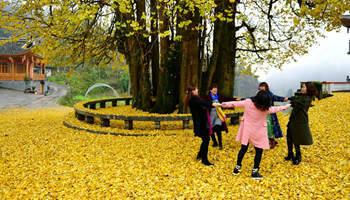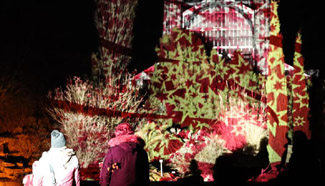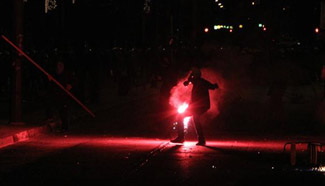The public security organs, people's procuratorates and people's courts strictly implement requirements such as reviewing age, designating lawyers for defendants, and prudently applying custody measures in handling juvenile criminal cases, and notifying legal representatives and appropriate adults to be present. The judicial organs may take into consideration the family and school background, cause of crime, guardianship and education of a juvenile offender and use these as references when handling a case. Trials of cases in which the offenders are under the age of 18 will not be open to the public. If the offender is under 18 at the time of the crime and sentenced to less than five years of imprisonment, the records of the crime will be sealed. Efforts are made to educate and transform juvenile delinquents and minors involved in misbehavior. Since 2002, the juvenile relapse rate has been brought below 2 percent, and juvenile delinquency cases have decreased gradually to a ratio of 3.56 percent of all crimes in 2015.
Improve civil procedure system to strengthen protection of social and public interests. The Civil Procedure Law revised in 2012 set up a public interest litigation system. For conduct which damages public interests such as environmental pollution, or infringement of consumers' legitimate rights and interests, the relevant units and organizations prescribed by law may bring a lawsuit to the people's court. In 2015, the Supreme People's Court released a judicial interpretation to specify the prosecutor, court of jurisdiction, and trial procedure in environmental civil public interest litigation. In 2015, with the authorization of the Standing Committee of the NPC, the Supreme People's Procuratorate launched a pilot program for public interest litigation in the fields of ecological and resource protection, state assets protection, assignment of land use right of state-owned land, food and drug safety, etc. The pilot procuratorates launched pre-trial procedure in 325 cases, gave suggestions and urged relevant administrative organs to take action or correct 224 violations and some social organizations to institute six public interest litigations. In cases of non-performance of duties, or in absence of social organizations taking any action, while public interests are being continually damaged, the procuratorial organs may institute public interest litigations. In 2015, there were 12 such cases.
Formulate and implement Anti-Domestic Violence Law to strengthen legal protection of the personal right of victims. The revised Civil Procedure Law stipulates provisions for behavior regulation and defines the legal basis for rulings on personal protection. In December 2015, the Standing Committee of the NPC adopted the Anti-Domestic Violence Law, which stipulates that the offender should be given a written admonition, or subject to public security punishment or criminal sanctions based on the seriousness of the case. A personal safety protection writ system was set up for the first time to effectively protect the legitimate rights and interests of victims of domestic violence, particularly minors, the elderly, the disabled, and pregnant and lactating women. The Supreme People's Court, the Supreme People's Procuratorate, the Ministry of Public Security and the Ministry of Justice jointly released the Opinions on Handling Domestic Violence Cases in Accordance with Law to strengthen timely judicial intervention in cases of domestic violence. From 2014 to 2015, the Supreme People's Court released 15 typical cases involving domestic violence, providing judicial guidance to further protect the legitimate rights and interests of women, minors, and the elderly. The people's court of Yuexiu District, Guangzhou City accepted an application for personal safety protection from a woman named Lin, and issued a Personal Safety Protection Writ, forbidding respondent Xu, her husband, from inflicting violence on her and her family, and from interfering with the normal life of her and her family by harassing or tracking, and prohibiting his presence within 200 meters of her residence to effectively protect the personal safety of the applicant.
Reform the administrative litigation system to protect the legitimate rights and interests of private parties to administrative lawsuits. The revised Administrative Procedure Law in 2014 aimed to resolve difficulties in filing, adjudication, and execution of court rulings. It specifies that administrative agencies are not allowed to interfere with or impede the admission of administrative cases by the people's courts. In handling administrative cases, the people's courts can review regulatory documents formulated by ministries under the State Council, local people's governments and their departments, and if they find them unlawful, such documents cannot be used as references of legality in administrative cases and people's courts should offer suggestions to the enactment bodies. It also stipulates that if the reconsideration organ's decision sustains the original administrative action, the administrative organ taking the original administrative action and the reconsideration organ shall be co-defendants. The individual in charge of an administrative organ against which a complaint is filed shall appear in court to respond to the complaint. Measures should be improved to motivate administrative organs to implement effective judgments, and if they refuse to implement such judgments, convictions or mediation papers, people's courts may impose fines on or arrest leading members of administrative organs, persons in direct charge and others held accountable.










